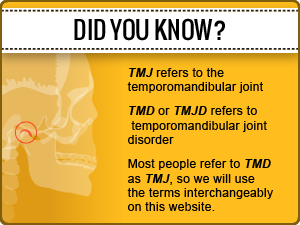Depression and chronic pain; how are they related?
 Many individuals suffer from chronic pain associated with various illnesses. While short-term pain serves a specific purpose involving body and brain communication, chronic pain is not natural.
Many individuals suffer from chronic pain associated with various illnesses. While short-term pain serves a specific purpose involving body and brain communication, chronic pain is not natural.
Certain medical problems can cause constant pain, and getting that pain under control is an important part of any treatment regimen for several reasons. One of those reasons is the fact that chronic pain can many times lead to real long-term depression.
Pain is a symptom
People who suffer from TMJ disorders and Myofascial Syndrome are prime examples of how chronic pain and depression are connected. The same is true for those who suffer from sleep apnea. It is important to understand pain as a symptom of a primary medical issue.
Treating the actual medical problem is essential to totally eliminating the pain. However, the pain must also be treated in the process because it can have a dramatic impact on overall living. Migraines are an excellent example. Some individuals suffer from migraines so bad that they must lay down in a dark room as a component of dealing with the pain.
What’s the link?
Of course, no one enjoys being in constant pain. Part of treating any illness is focused on the ability to maintain an active life. But, there is a greater concern with leaving pain untreated. One of those primary concerns is concern is development of depression.
Depression can evolve because we feel pain in our Limbic system, which is also the region of the brain that controls our emotions. Depression is more than just feeling sad.
Stress-related pain associated with depression can also include pain in the back or the head and often occurs regularly. This can mean that the pain leading to depression can be regenerated by the depression into other areas of the body. Now the result can be a roller coaster effect between multiple sources of pain and the mental condition of depression, increasing the overall impact of the primary medical condition.
In many cases, the next result of the roller coaster effect is sleep deprivation or snoring, if not a fully developed sleep disorder. This combination can then lead to other serious health problems and a reduced quality of life.
Break the chain
The chain link relationship between pain and depression, along with other subsequent negative health possibilities, is a primary reason why treating the ultimate cause of pain symptoms is so important.
Many people do not realize that pain generated by undiagnosed TMJ disorders can be effectively eliminated by a dentistry professional who may be able to stop the cycle of pain, depression and sleep deprivation.


